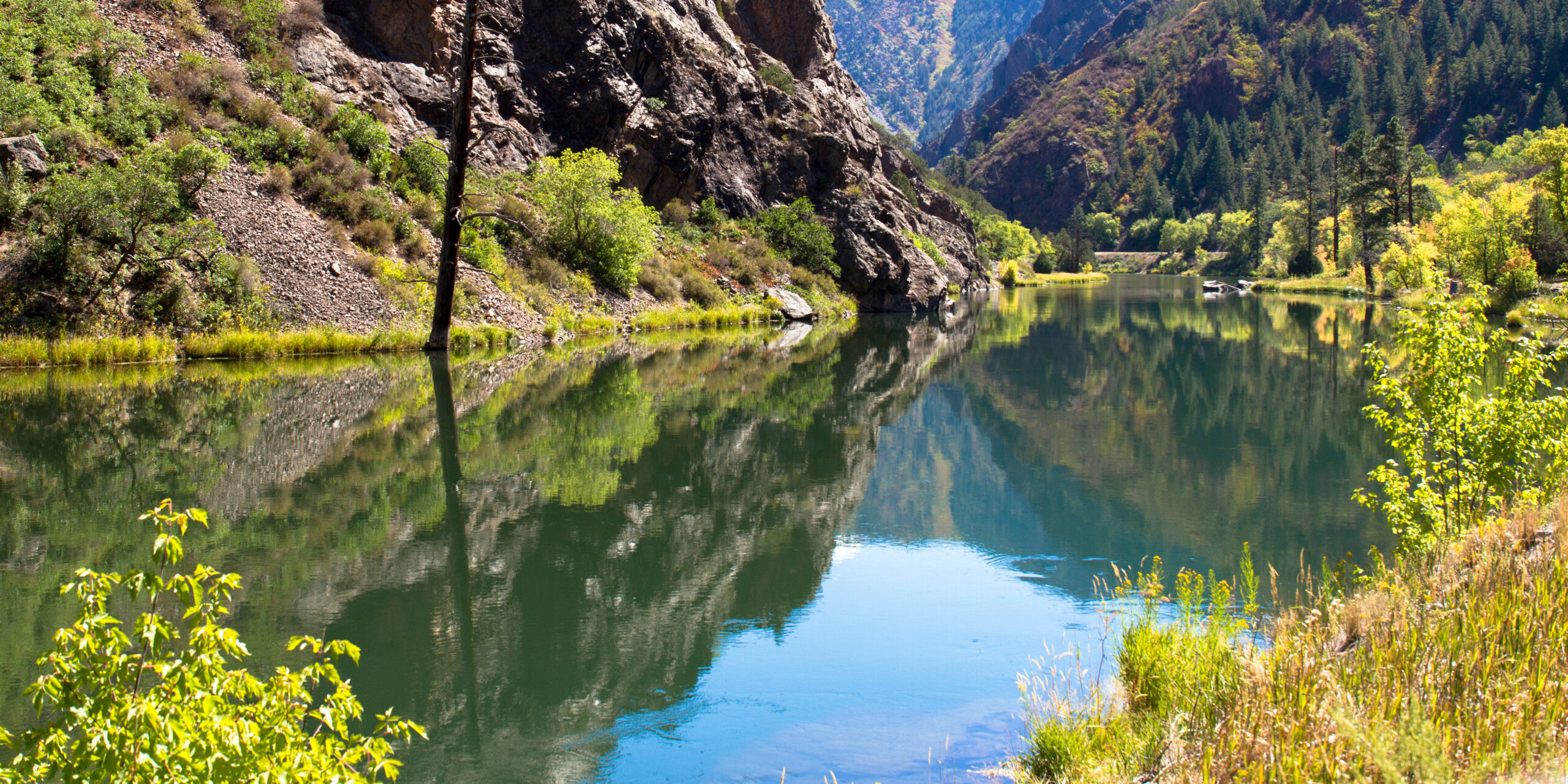April 20, 2023
DENVER — Colorado Senator Dylan Roberts, House Speaker Julie McCluskie, Senator Perry Will and Representative Marc Catlin introduced bipartisan legislation today (SB23-295 Colorado River Drought Task Force) that will create a task force to address the historic drought conditions on the Colorado River. The Colorado River Water Conservation District Board unanimously voted to support the legislation.
The Colorado River is in the midst of a three-decade drought, the worst in over 1,200 years, and water supplies are decreasing across the state as a result. These diminishing supplies are threatening needs for drinking water, agricultural uses, and environmental and recreational opportunities.
New and more flexible tools can help Colorado communities, and all who depend on rivers, respond to threats and impacts of drought. Without clear action in the immediate future, these problems will only get worse.
“All of us on the Western Slope depend on a clean and reliable supply to power our economy and promote our way of life, but worsening drought conditions, exacerbated by climate change, are putting our water supply in jeopardy,” said Senator Roberts (D-Avon). “I am proud to sponsor this important legislation, which will bring us one step closer to addressing one of the most pressing issues our state has ever faced – the endangered Colorado River – and ensure every Colorado community has access to the water resources they need now and into the future.”
Colorado needs to reduce its overall water demand to increase resilience and improve its ability to respond to drought and climate change, using its water resources wisely for municipal, agricultural, industrial, recreational, and environmental needs. Creating drought security — through new and more flexible legal tools to manage water — is essential to our state’s long-term wellbeing and positions us as leaders throughout the Colorado River Basin and the West. Establishing the Colorado River Drought Task Force will enable new programs to respond to drought conditions, balance the needs of water users across the state, and help Coloradans be ready for the future.
The bill introduced today will have the task force meet starting in July and through the end of the year to do the following:
- Develop recommendations for programs allowing Colorado to proactively address the effects of drought and climate change on the Colorado River and its tributaries in the state.
- Develop new recommendations that avoid disproportionate economic and environmental impacts to any one specific region within the state, and require that any acquisition by the programs of a water right used for agricultural irrigation purposes is voluntary, temporary, and compensated.
- Determine roles in designing and implementing programs, and collaboration among
the Colorado River Water Conservation District, Southwestern Water Conservation District, and the State of Colorado. - Evaluate sources of revenue for the acquisition of water, which will be on a strictly voluntary and compensated basis for the owner of the water right.
- Provide Colorado’s Division of Water Resources with the authority and direction to send water down river, which will reduce or mitigate interstate commitments on the Colorado River in a way that provides benefits to the environment and recreational opportunities.
“We must work together to find solutions that will protect Colorado River water for the many Coloradans that rely on it for our livelihoods,” said Speaker Julie McCluskie (D-Dillon). “Our Western Slope communities, economy, and our way of life depend on finding a collaborative solution to our water resource challenges. This task force is the first step of many to address the impacts of historic drought conditions that are facing Colorado and its neighbors. I look forward to future legislation that will do even more to address this most pressing issue.”
The task force will include representatives from the following organizations, Tribes, and individuals:
- The State of Colorado Department of Natural Resources
- The State of Colorado Department of Water Resources
- The Ute Mountain Ute Tribe
- The Southern Ute Tribe
- The Colorado River Water Conservation District
- The Southwestern Water Conservation District
- Front Range municipal water providers
- Western Slope local government elected officials
- Environmental organizations with expertise in Colorado River interstate governance
- A farmer or rancher located in the jurisdiction of the Colorado River Conservation District
- A farmer or rancher located in the jurisdiction of the Southwestern Water Conservation District
- An industrial water user on the Western Slope
“Climate change is threatening our Colorado way of life,” said Kelly Nordini, Conservation Colorado’s CEO. “The Colorado River is vital to the health of our economy and environment and is at serious risk from climate change. This task force is a step in the right direction toward building out meaningful legislation that will protect our water for generations to come.”
“Collaboration is a hallmark of water in Colorado and along the Colorado River,” said Carlos Fernandez, state director for The Nature Conservancy in Colorado. The Colorado River Drought Task Force continues this approach by providing a critical framework to build shared priorities and recommendations. In concert with other actions being taken across the Basin, Colorado can and must proactively address drought and climate change on the River in ways that respect community, water user, and environmental needs.”
Contact
Christie Silverstein, 602-803-4130, christie.silverstein@westernresources.org
Caitlin Weber, 602-803-4130, caitlin.weber@westernresources.org


